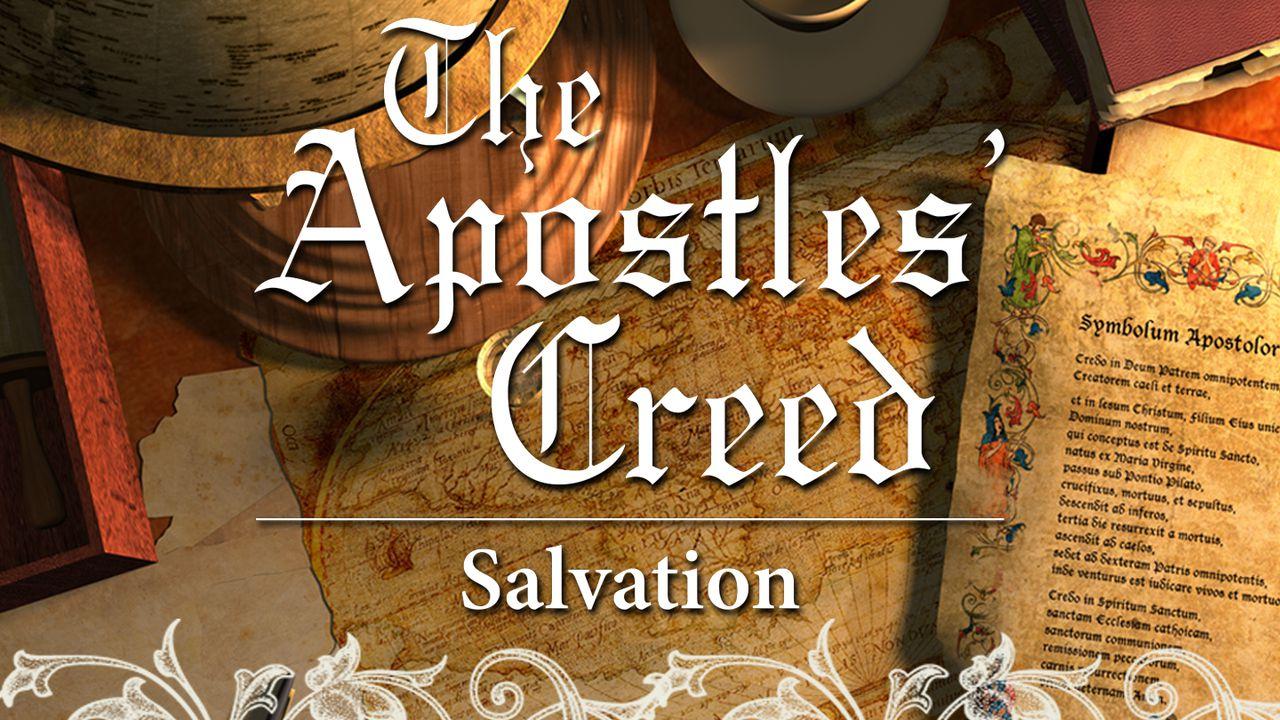The Apostles’ Creed: SalvationSample

Gospel in the Old Testament: Isaiah 52:7
Many modern Christians don’t realize this, but the word gospel, which means good news, actually comes from the Old Testament. In particular, we find it in Isaiah 52:7 and 61:1, and Nahum 1:15. As just one example, consider Isaiah 52:7:
How beautiful on the mountains are the feet of those who bring good news, who proclaim peace, who bring good tidings, who proclaim salvation, who say to Zion, "Your God reigns!" (Isaiah 52:7).
In the Old Testament, the “good news” or “gospel” was that God would save his people by defeating his enemies and theirs. In a narrow sense, this was the good news that God would rescue his people from the oppression of their earthly enemies. But in a broader sense, it was the good news that God would reverse all the curses that resulted from Adam and Eve’s fall into sin. He would extend his glorious heavenly reign over the entire earth, and ultimately bless everyone who had faith in him.
Of course, the salvation God provided in the Old Testament was based on Christ’s future victory. Although Christ had not yet come to die for sin, he had already promised to die on behalf of his people. And that promise was sufficient to secure their salvation. In fact, every hope of salvation in the Old Testament pointed to Christ and what he would accomplish.
Consider the way Hebrews 10:1-5 describes the Old Testament sacrifices:
The law is only a shadow of the good things that are coming — not the realities themselves... [I]t is impossible for the blood of bulls and goats to take away sins. Therefore, when Christ came into the world, he said: "Sacrifice and offering you did not desire, but a body you prepared for me.” (Hebrews 10:1-5).
The author of Hebrews indicated that the Old Testament sacrifices were only shadows of the reality that was later realized in Christ. Animal sacrifices could never perfectly atone for sin because God required that human sin be punished with human death. But they could and did point to Jesus, whose fully human death was a perfectly sufficient and effective atonement for sin.
As part of the gospel in the Old Testament, God’s people were taught that a day was coming when God would raise all the dead of humanity, and judge them for their deeds. Those who had lived righteously, having faith in God, would be everlastingly blessed. But those who rebelled against God would be condemned to a perpetual future of punishment. Both of these sets of consequences would continue forever in bodily form. Christian theologians commonly refer to this event as the last judgment.
The Apostles’ Creed refers to the last judgment in the line:
From there he will come to judge the living and the dead.
Perhaps the clearest statement of the idea that the last judgment involves bodily resurrection can be found in Daniel 12, where an angelic messenger revealed to Daniel that in the future God would deliver his people from oppression.
Consider what Daniel was told in Daniel 12:1-2:
At that time your people — everyone whose name is found written in the book — will be delivered. Multitudes who sleep in the dust of the earth will awake: some to everlasting life, others to shame and everlasting contempt (Daniel 12:1-2).
Daniel specifically referred to bodily resurrection when he spoke of those who sleep in the dust of the earth. Souls do not sleep in the dust of earth; bodies do. And it’s those bodies that will be raised at the final judgment.
Scripture
About this Plan

This reading plan addresses the forgiveness of sins, the resurrection of the body, and the nature of everlasting life.
More
We would like to thank Third Millennium Ministries for providing this plan. For more information, please visit:
http://thirdmill.org
Related Plans

Christian Foundations 10 - Beliefs Part 2

One Minute, One Verse, One Prayer: Truth & Faith

Alive and on Fire - a Video Devo With Illusionist, Dustin Tavella

How We Gave $1 Million (Without Being Rich)

"An INVITATION to FOLLOW : A 5-Day Journey Into Discipleship"

It Is Well

What Is the Fear of the Lord?

A Christian Parent's Guide to Navigating Youth Sports

Grow Through It: 7 Healing Practices That Cultivate Resilience a 7-Day Reading Plan by Essie Faye
